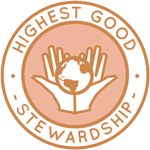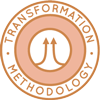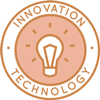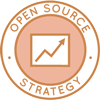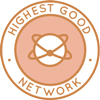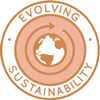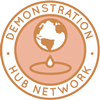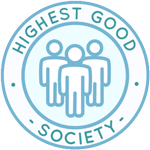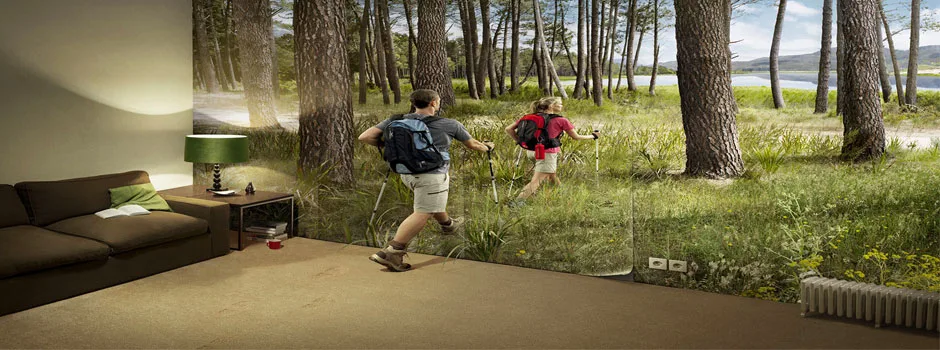
Highest Good Lifestyle Considerations
Highest Good lifestyle considerations are areas beyond Highest Good infrastructure, Highest Good society, and a resource based economy that we consider important for One Community to address so that we demonstrate the most comprehensive approach possible for Highest Good of All living. This page will continuously evolve as on-going and globally collaborative open source portal to the research and development of One Community and any collaborative groups or individuals interested in helping us address Highest Good living in the following areas:
- Highest Good daily living practices
- Highest Good tools
- Highest Good hardware
- Highest Good machines
- Highest Good materials
- Highest Good furniture, toilets, etc.
- Highest Good electronics
- Highest Good transportation
- Highest Good kitchen supply
- Highest Good recreational items
- Highest Good cleaning solutions
- Highest Good food we can’t produce ourselves
- Highest Good toiletries and hygiene solutions
- Highest Good clothing and other personal items that will remain outside the resource based economy
RELATED PAGES (Click icons for complete pages)
WAYS TO CONTRIBUTE TO EVOLVING THIS SUSTAINABILITY COMPONENT WITH US
SUGGESTIONS | CONSULTING | MEMBERSHIP | OTHER OPTIONS

HIGHEST GOOD LIVING
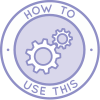 We are planning to the best of our ability so we arrive on day 1 with most of the major financial investment items needed for the first year of living and building on the property. As we move forward, we will be seeking to additionally identify and only purchase the Highest Good options for all the items we use. Identifying the Highest Good choice for many of these areas will take extensive research and discussion to assure consideration of all factors and variables. For examples of areas we’ve already researched, see our pages covering toilets, faucets, urinals, hand dryers, shower heads, lightbulbs, insulation, paints, stains and primers, and adhesives.
We are planning to the best of our ability so we arrive on day 1 with most of the major financial investment items needed for the first year of living and building on the property. As we move forward, we will be seeking to additionally identify and only purchase the Highest Good options for all the items we use. Identifying the Highest Good choice for many of these areas will take extensive research and discussion to assure consideration of all factors and variables. For examples of areas we’ve already researched, see our pages covering toilets, faucets, urinals, hand dryers, shower heads, lightbulbs, insulation, paints, stains and primers, and adhesives.
We’ll also be seeking to establish relationships with the best producers of daily use products (like toothpaste or soap) that we can buy in bulk. When we identify the best, most ethical, and most sustainable producer and are ready to purchase, our goal will be to coordinate a large-scale (hopefully 50-gallon drum) purchase of the product we choose so we can eliminate packaging-waste, buy direct at the most affordable price and paying an even better per/ounce value to the producer, and provide our chosen products as the preferred options for all residents and visitors to refill their own containers. As part of establishing this kind of purchasing plan, our hope is that others will be able to purchase similarly.
With all of the above in mind, each of the bullet points in each of the sections below is an area we will prioritize and begin addressing in Phase I of our rollout on the property. We will continuously expand the lists here and evaluate each item with the intent to do one of three things:
- Invest the necessary resources to find a Highest Good solution immediately
- Start gathering objective data for comparison when we adopt a Highest Good solution later
- Create a collaborative tool and enroll others to help us find/create the needed Highest Good solution
HIGHEST GOOD DAILY LIVING PRACTICES
- Composting, repurposing, reusing, etc.
- Energy saving tips for brushing, washing, etc.
- Water saving tips for brushing, washing, etc.
- Health saving tips for brushing, washing, etc.
- Go “Poo-less”: Paul Wheat Podcast ” Poo-Less: Shampoo and Soap-less for 2 Years. The One Community core team does this and we recommend it for saving water, time, and putting less “toxic gick” on your body. Your skin will be healthier and you will still smell good.
- Daily cleaning: cloth versus paper towels, napkins, etc.
- These Swedish Dish Cloths are a paper towel replacement that we use and like more than cloth because they work and feel better and are just as reusable.
- Use clothes lines or drying racks
- Create a “boneyard”. This is a place where old electronics, tools, toys and anything else that could be useful in the future goes for full-community access rather than putting it in a landfill.
- Create a “free shelf”. This is a place where people put things that anyone can take for free if they have a use for it. It’s similar to a boneyard, but usually accessible to the general public.
- Best Small and Large-scale Community Plastic Recycling, Reuse, and Repurposing Options
- Best Small and Large-scale Community Paper Recycling, Reuse, and Repurposing Options
- Best Small and Large-scale Community Glass Recycling, Reuse, and Repurposing Options
- Best Small and Large-scale Community Styrofoam Recycling, Reuse, and Repurposing Options
- Best Small and Large-scale Community Clothing Recycling, Reuse, and Repurposing Options
- Best Small and Large-scale Community Options for Sustainable Processing of Non-recyclables
- Article: 20 Things I Never Throw Away
- Article: 84 Tutorials to Help You Become More Self-sufficient
- Article: “How to Seriously Lessen Your Carbon Footprint When You Move”
- Article: The Ultimate Guide to Cheap Green Living
- Ideas to add? Click here to make this page better!
HIGHEST GOOD TOOLS
- Power tools (drills, staple guns, riveters, nail guns, etc.)
- Hand tools (hammers, handsaws, levels, tape measures, etc.)
- Garden and soaker hoses that do not leach chemicals
- Farm Hack – A worldwide community of farmers that build and modify our own tools and share their designs
- Ideas to add? Click here to make this page better!
HIGHEST GOOD HARDWARE
- Nails, screws, bolts, etc.
- One Community’s Research: Most Sustainable Lightbulbs and Light Bulb Companies
- Ideas to add? Click here to make this page better!
HIGHEST GOOD MACHINES
- Vehicles (cars, tractor, backhoe, etc.)
- Machines (planer, jigsaw, table saw, etc.)
- How soon to start building with our friends at Open Source Ecology
- Here’s a link to open source pedal powered appliances of all kinds
- Ideas to add? Click here to make this page better!

HIGHEST GOOD MATERIALS
- Building Materials: Carpet, Flooring, Wood, Etc.
- One Community’s Research: Most Sustainable Adhesives
- One Community’s Research: Most Sustainable Flooring
- One Community’s Research: Most Sustainable Insulation
- One Community’s Research: Most Sustainable Paints, Stains, Varnish, Sealers
- Here is an option for shredding and repurposing/recycling styrofoam: Enstyro.com
- Open source machines for recycling/repurposing your own plastic: www.preciousplastic.com This video explains how it works:
HIGHEST GOOD FURNITURE, TOILETS, ETC.
- Beds, chairs, cabinets, toilets, hand dryers, and other furniture and equipment we don’t make.
- One Community’s Research: Most Sustainable Doors and Door Companies
- One Community’s Research: Most Sustainable Windows and Window Companies
- One Community’s Research: Most Sustainable Faucets and Faucet Accessories
- One Community’s Research: Most Sustainable Hand Dryers
- One Community’s Research: Most Sustainable Toilets
- One Community’s Research: Most Sustainable Urinals
- Best Green Mattresses | Mattress Disposal Guide
- Article: “How to design an energy efficient bedroom”
- Ideas to add? Click here to make this page better!
HIGHEST GOOD ELECTRONICS
- Tablets, cell phones, computers, music, etc.
- Open source medical devices
- Ideas to add? Click here to make this page better!
HIGHEST GOOD TRANSPORTATION
- For traveling off the property with small groups
- For traveling off the property with large groups, getting supplies, etc.
- Within the property for people/guests, food, huge supplies like lumber, etc.
- Ask your co-worker for a ride. Whether your request is accepted or not, you have planted a thought.If your request is accepted, ask again. Possibly ask if this could become a once a week practice.
- Ideas to add? Click here to make this page better!
HIGHEST GOOD KITCHEN SUPPLY
- Utensils
- Cookware, bakeware, bowls, jars, glasses, etc.
- Tools, gadgets (food saver, dehydrator, canning)
- Wax paper, baggies, freezer bags, foil, etc.
- Ideas to add? Click here to make this page better!
DIY HOME CARE ITEMS
More DIY Potpourri by Happy Money Saver
HIGHEST GOOD RECREATIONAL ITEMS
- Camping gear
- Items needed for classes
- Sports equipment
- Article about game manufacturing: “How to manufacture your game domestically, sustainably, and ethically”
- Ideas to add? Click here to make this page better!

HIGHEST GOOD CLEANING SOLUTIONS
- Mops, brooms, etc.
- Cleaning products
- Ideas to add? Click here to make this page better!
DIY CLEANING RESOURCES
Homemade Natural Bleach Alternative ” If you find bleach cleaners too strong and sometimes irritate your skin or eyes, then this alternative promises to clean just like bleach but without the harmful side affects.
DIY Hardwood Floor Cleaner from Clean Mama.
DIY Car Upholstery Cleaner from Creative Savings
Another DIY Laundry Detergent from Saving by Design creates a year’s worth of laundry detergent for less than $25
DIY Orange Vanilla Furniture Polish by Two Little Cavaliers
Another Homemade Glass Cleaner from DIY Natural
Homemade Tub & Tile Cleaner from Money Saving Mom
Homemade “Comet” Powdered Cleaner from The Robinson’s Home Sweet Home
11 Simple DIY Green Cleaning Products: Bleach alternative, DIY oven cleaner, DIY carpet cleaner & stain remover, glass cleaner, all-purpose cleaner, air freshener, cleaning wipes, bathroom cleaner, furniture polish, floor cleaner, and garbage disposal cleaner
HIGHEST GOOD FOOD WE CAN’T PRODUCE OURSELVES
- Local farms?
- Online bulk orders?
- Dehydrator, canning etc.
- How best to reduce/reuse/recycle all packaging
- Ideas to add? Click here to make this page better!
DIY FOOD RESOURCES
HIGHEST GOOD TOILETRIES AND HYGIENE SOLUTIONS
- Disposables (bulk/make our own?) shampoo, soap, conditioner, lotion, etc.
- Reusables (toothbrush and razor handles, dispenser/containers, etc.)
- Methods/products to be most efficient with time, water, and hygiene
- Feminine products (menstrual cups, reusable pads, pee style, etc.)
- Ideas to add? Click here to make this page better!
DIY PERSONAL CARE RESOURCES:
Honey Shampoo ” This shampoo helps reduce frizz, combat dandruff, moisturizer and softens your hair all in one. A natural, kind to your skin shampoo that will make you think twice next time you are in the store.
A NOTE ABOUT ECOLOGICALLY FRIENDLY SOAPS, SHAMPOOS, AND CONDITIONERS
We researched ecologically friendly soaps because we’ll be using the greywater from these eco-showers for watering plants. Through this process we determined that ‘biocompatible’ soaps were really what we were seeking rather than ‘biodegradable’, ‘natural’, and/or ‘eco-friendly’ soaps as those three latter terms don’t mean much when it comes to how suitable they are for plants and soil.
More specifically, plants need to avoid:
- Sodium – very bad for plants, potassium-based soaps are better
- Boron (such as borax) – plants need a very small amount, above that amount it is very toxic
- Chlorine – toxic to plants (and people), use peroxide instead
- Phosphates – causes eutrophication (algae and plant overgrowth leading to hypoxia)
Liquid soaps tend to have less salts than bar soaps, because liquid-based soaps can use potassium-based lye, whereas bar soaps typically use sodium-based lye (some use glycerine, which is better than those made with lye). The amount of chemical additives in shower greywater though is usually negligible due to dilution. In general, even typical shampoos and conditioners don’t harm plants because they are low in salt and free of boron, and then highly diluted by the water used for the shower.
Our sustainability and health goals still warrant conscientious soap selection though. With this and the above details in mind, the following soaps have been determined as viable soap/shampoo/conditioner options that are biocompatible:
- Pure Castile Soap (like Dr. Bronner’s)
- Aubrey organics shampoo
- Some Burt’s Bees products
- Everyday Shea
- Trader Joe’s citrus shampoo and conditioner
- Mrs. Meyers bar soap
- Avalon shampoo and conditioner
When we make our final decision and are ready to purchase, our goal will be to coordinate large-scale (hopefully 50-gallon drum) purchase of the product we choose so we can eliminate packaging-waste, buy at the most affordable price, and provide our chosen soaps as the preferred option for all residents and visitors. If we can establish this kind of purchasing plan, our hope is that others will be able to purchase similarly.
DIY BEAUTY AND MAKEUP SOLUTIONS
CLICK HERE IF YOU HAVE IDEAS YOU’D LIKE TO SEE ADDED HERE

Special thanks to GlobalRejuvenation.blogspot.com and NaturalLivingIdeas.com for their contribution of the DIY Resources lists above.
HIGHEST GOOD CLOTHING AND OTHER PERSONAL ITEMS
- Purchasing of new items like underwear, etc.
- Other items: Do we recycle? Buy from goodwill etc.? Ask for donations?
- Here’s a free resource of over 83,500 vintage sewing patterns
- Ideas to add? Click here to make this page better!
FREQUENTLY ANSWERED QUESTIONS
Q: What criteria will you be using to address these areas?
Criteria for “Highest Good” selection that have been discussed thus far include:*
- Performance (choice needs to still meet agreed upon needs)
- Social consciousness of equipment/materials/resource provider
- Sustainable longevity (durability, long-term implementability, etc.)
- Environmental impact (location-based carbon footprint, packaging, etc.)
- Ideas to add? Click here to make this page better!
* Note: These criteria are not in any particular order because it is expected that the ordering of criteria will most likely differ in many situations.
Q: What other areas will you be addressing?
Here’s a 2.5 hour keynote address by Paul Wheaton that pretty much sums up the additional areas we’d like to address with comprehensive sustainability. We see almost everything in Paul’s presentation as worth exploring, further developing, and open source sharing.
Q: What sets One Community apart from similar projects?
One Community's open source project-launch blueprinting strategy and the fact that we are open sourcing and addressing ALL elements of society simultaneously are a combination unique to our organization. Together, these will help others duplicate what we do and create self-propagating teacher/demonstration communities, villages, and cities capable of positively impacting every single person on this planet within one generation.
Q: What sets One Community's open source goals apart from similar projects?
To our knowledge, no other project exists that is providing the comprehensive nature and detail of everything we are open source project-launch blueprinting.
Q: What is the specific One Community short-term goal?
- Become a world leader in global-solution information content within 6 months of moving onto the property as detailed in our open source project-launch blueprinting page.
- Expand within 5 years to a community of 200 full-time residents producing ongoing tools, resources, and tutorials while hosting thousands of annual visitors as outlined in our long-term vision page.
- Define the global-solution industry itself as an open source industry, expanding mainstream awareness, appeal, and desire for comprehensive sustainability by demonstrating and sharing a more attractive and fulfilling way of living that people can have if they desire to create it also.
- Teach as many people as possible to duplicate and/or evolve our global transformation model.
Q: What is the ultimate One Community long-term goal?
To transform our world into a sustainable and happier one through teacher/demonstration communities, villages, and cities to be built all over the world. We will work with these hubs as our open source partners and fellow leaders of the open source, Highest Good of All, and sustainable planet movement leading to a New Golden Age of cooperation, collaboration, innovation, creativity, sustainable living, and increased happiness for the entire human organism.
Q: How are you funding One Community?
We are still seeking funding. Please see our Funding Related Details Page.
Q: Where will One Community be located and why?
Click HERE for property details that include why we have chosen the location we have.
Q: How far is One Community in the creation process?
Visit our progress page for a regularly updated list of our accomplishments and progress. Visit our blog for our on-going mini-updates and weekly summaries of accomplishments and progress.
Q: Why not just build a small-scale prototype home or community that includes a minimum-scale revenue-generating demonstration/operation? Wouldn't this get things going faster?
This small-scale operation already exists as Airbnb. What we see as missing is a complete model for self-sufficiency that is open source and reasonably replicable. Even complete models for self-sufficiency already exist in the form of the many eco-villages out there. What none of those offer though is any sort of understanding and/or path for how average people can replicate them. We also think there isn't enough of a compelling reason for most people to bother with changing how they live now to engage such a path/project, so our project is purposed to provide and demonstrate that too.
From a total global-change perspective though, we think it is even more important to create a permanent example:
- Dedicated to open source
- Capable of providing for the complete needs of hundreds of people.
- Providing the support needed so residents can work together on open source creation full-time.
- Revenue generation and space for expansion to grow to over a 1000+ full-time resident-volunteers.
- Able to support the establishment of other open source teacher/demonstration/R&D hubs around the world.
This is why the intended property, village models, social architecture and economic focuses are all big. To support faster and broader implementation, we are also developing everything so it is modular and implementable as individual components. This will allow for anyone who doesn't desire the full teacher/demonstration hub approach to have options too, but our primary goal is to demonstrate the complete teacher/demonstration hub as easy enough, affordable enough, and attractive enough for average people with average means to want to replicate it and/or use what we provide to build their own version.
Q: If you are giving everything away through open source, how do you intend to make money?
Our model is designed to prosper specifically because we are giving everything away through open source project-launch blueprinting. We accomplish this through eco-tourism marketed with the open source infrastructure we have already created and other supported revenue streams outlined on our revenue streams page. All of this further promotes our model of spreading sustainability and actively promoting and distributing even more open source blueprints for duplication by as many people as possible.
Q: How will this help people in Third World countries and other areas that need resources most?
Using the four-phase strategy above, we wish to demonstrate building a teacher/demonstration community, village, and/or city as profitable for large investors and/or a way for small groups of people to pool what resources they have and get out of debt. We see this spreading and bringing resources to the areas that need them most because building these villages in these areas will be more affordable and easier to do with less building restrictions.
Q: How do you stop the model from being totally capitalized without the positive intent of the original model?
We are not focused on putting limitations on the use of everything we are creating because of our open source commitment. We will, however, directly support any organization contributing specifically to open source project-launch blueprinting and operating for The Highest Good of All.
Q: Where would I find a more detailed description of how this works?
Please visit our About Us page, Methodology page, and Site Map for more comprehensive descriptions and links to complete details for every aspect of One Community.
Q: What about safety?
We consider a community of 500 people with shared goals and vision more safe than current living models. We think even a group of 50 people working together can handle any reasonable challenge.
 One Community
One Community